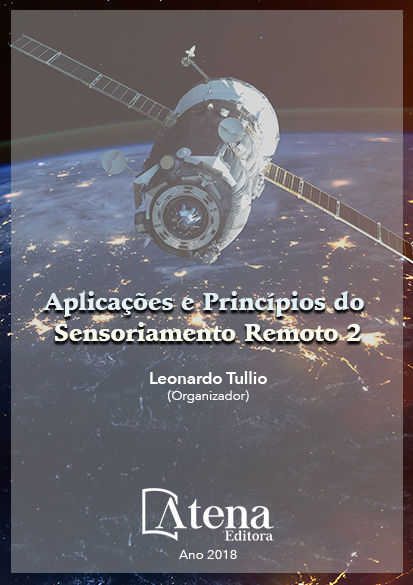
ANÁLISE DO COMPORTAMENTO ESPAÇO-TEMPORAL DAS GEOFORMAS FLUVIAIS DO BAIXO CURSO DO RIO DOCE COM O AUXÍLIO DE IMAGENS ORBITAIS LANDSAT 8 - LINHARES, ES
A água desempenha um papel
importante como agente transformador da
paisagem. Os processos fluviais de erosão,
transporte e deposição são interdependentes
e interligados como componentes de um
sistema de bacias hidrográficas, cujas ações
promovidas interferem direta ou indiretamente
nesses processos (enfatizando, neste ponto,
mudanças de uso e ocupação da terra
promovidas por atividades antrópicas). Assim,
este trabalho tem como objetivo mapear e
analisar o comportamento das formas terrestres
fluviais presentes no canal principal do curso
inferior do rio Doce (Linhares / ES / Brasil)
durante os períodos de baixa-mar, normal e
plena, correlacionando os fatores temporais e
processos que ocorrem a montante da área de
estudo, o curso superior e médio do rio. Como
objetivos específicos, buscou-se verificar a
contribuição do uso integrado de sistemas de
informação geográfica (SIG) e produtos de
sensoriamento remoto (neste caso, imagens do
satélite Landsat 8) para o estudo e compreensão
da dinâmica do processo fluvial. A metodologia
mostrou-se altamente satisfatória, fornecendo
uma visão geral de toda a área analisada, a
identificação e contagem de formas de relevo.
Identificamos mudanças na presença de tais
características para os três períodos diferentes,
refletindo a variabilidade sazonal da dinâmica
dos rios, e destacamos a importância de uma
abordagem sistêmica que considera a bacia
hidrográfica como uma unidade de planejamento.
Assim, a metodologia foi estabelecida como
uma ferramenta importante para auxiliar no
desenvolvimento de metodologias adequadas
de gestão e planejamento ambiental,
minimizando os impactos ambientais negativos.
ANÁLISE DO COMPORTAMENTO ESPAÇO-TEMPORAL DAS GEOFORMAS FLUVIAIS DO BAIXO CURSO DO RIO DOCE COM O AUXÍLIO DE IMAGENS ORBITAIS LANDSAT 8 - LINHARES, ES
-
DOI: Atena
-
Palavras-chave: dinâmica fluvial, planejamento ambiental, sensoriamento remoto, sistemas de informação geográfica.
-
Keywords: River dynamics, environmental planning, remote sensing, geographic information systems.
-
Abstract:
Water plays an important role as
transforming agent of the landscape. The fluvial
processes of erosion, transport and deposition
are interdependent and interconnected as
components of a river basin system, whose
actions promoted inside interfere directly or
indirectly in these processes (emphasizing, in
this point, changes of use and occupation of land
promoted by anthropogenic activities). Thus,
this paper aims to map and analyze the behavior
of fluvial landforms present in the main channel
of the lower course of the Doce river (Linhares /
ES / Brazil) during periods of low tide, normal and full, correlating the temporal factors
and the processes occurring upstream of the study area, the upper and middle course
of the river. As specific objectives, we sought to verify the contribution of the integrated
use of geographic information systems (GIS) and remote sensing products (in this
case, images from satellite Landsat 8) for the study and understanding of the dynamics
of fluvial process. The methodology proved to be highly satisfactory, providing an
overview of the whole analyzed area, the identification and counting of landforms. We
identified changes in the presence of such features for the three different periods,
reflecting the seasonal variability of river dynamics, and highlighted the importance
of a systemic approach that considers the river basin as a planning unit. Thus, the
methodology was established as an important tool to aid in the development of suitable
management and proper environmental planning methodologies, minimizing negative
environmental impacts.
-
Número de páginas: 15
- Andressa Padovani Gil


